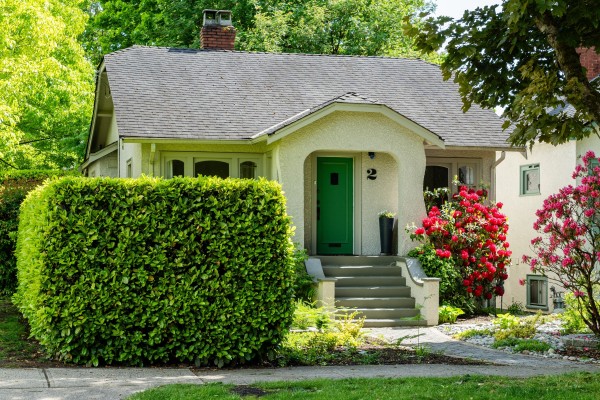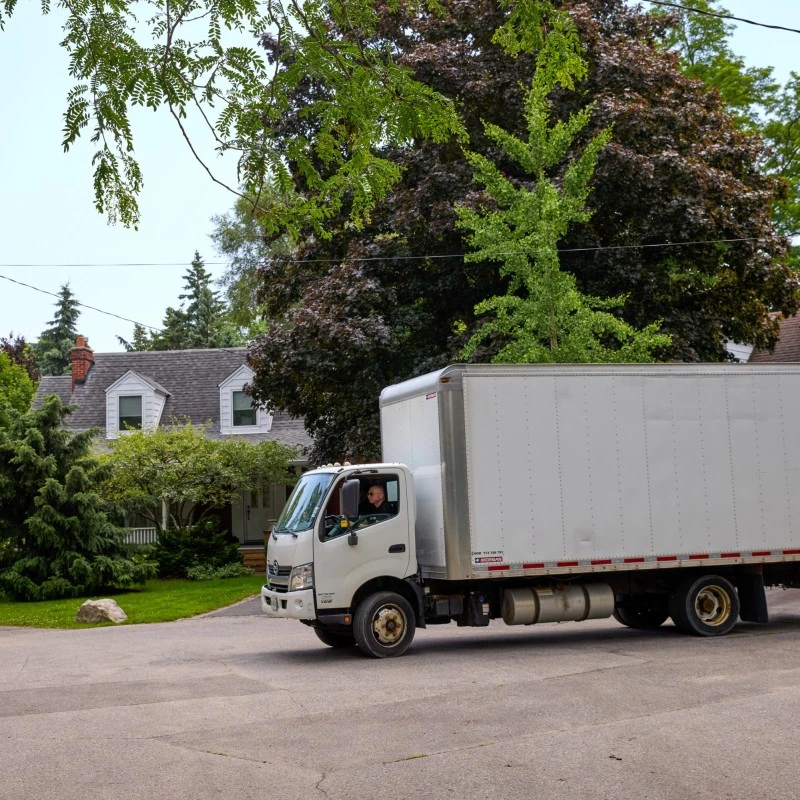The Cost of Living in Victoria [2025]

![The Cost of Living in Victoria [2025] The Cost of Living in Victoria [2025]](https://cdn.topmove.ca/image/blog/3b55ca0c4b4c14d99bcbf10bf1e2dbfb.jpeg)
Locals joke that Victoria is “for the newly wed and the nearly dead”, simply meaning that it’s a great city to raise a family or retire.
Jokes aside, Victoria is a popular Canadian city because of its beautiful natural surroundings, mild winters, and laid back culture. It has all the things you would want in a city, without the congestion and fast pace of a big metropolis.
Job opportunities are abundant in education, tourism, health care and government (Victoria is the provincial capital).
All of these qualities and more make Victoria an extremely popular city to live in, which in turn, drives up the cost of living. Victoria ranks third as the most expensive Canadian city to live in, after Toronto and Vancouver. If you are considering a move to Victoria, it's best to research the current cost of living so that your decision is informed.
Reasons to Move to Victoria
As the capital of B.C., there are ample jobs in government and the public sector. Victoria and Vancouver are the tech hubs of B.C., providing jobs in software development, IT services, and startups. As a major tourist destination, jobs in tourism and hospitality are plentiful. There are two hospitals and various clinics providing many healthcare jobs. Camosun College and Uvic keep hundreds of professionals employed in education. Being a coastal city, Victoria's location supports marine and ocean technology roles. There is also an emphasis on sustainability and green tech.
All of these factors make for a diverse job pool for professionals. The average annual income in Victoria is $58,558, and the average annual household income is $107,000.
What’s different about Victoria?
Small-town charm, deep history, immense beauty and mild weather cause Victoria to stand out from other Canadian cities. Year-round outdoor activities and a thriving arts community make it appealing to many. Many tourists who visit end up falling in love with the city and moving there, and who can blame them?
Being surrounded by the ocean has a downside - the whole city is separated from the rest of Canada by a 1.5 hour ferry ride. BC Ferries is a privately owned corporation, and can sometimes be a nuisance. Beyond pricey ferry ticket fares, long wait times and cancellations are common. This can make travel and commuting more complicated.
Island life also means that most of the city’s food is delivered via the ferry, driving up the cost of groceries for residents.
Despite these hurdles, locals love living in Victoria and believe that the positive benefits outweigh the challenges and high cost of living.
Cost of Living in Victoria
Renting in Victoria
Due to Victoria being a university city, rentals are in high demand. This drives the rental prices up exponentially. Some areas are on the more affordable side, including:
-
Esquimalt
-
Saanich East (Gorge/Tillicum)
-
Langford
-
View Royal
-
Colwood
These neighbourhoods easily connect to the city centre by public transit, and have all the amenities you need, such as shopping, restaurants and gyms, etc.
To save money on rent, you can share a place with roommates. The best online platforms to find or advertise room rentals are:
-
Craigslist
-
Kijiji
-
Facebook Marketplace
-
Roomies.ca
-
Rentals.ca
-
Zillow
-
Roomster
-
Zumper
Buying Property in Victoria
The median house price in VIctoria is $931,916. There are more affordable homes in Langford and Colwood, where you can find a decent house between $800,000 and $850,000.
Victoria ranks third in Canada for most expensive real estate, following Toronto and Vancouver.
Victoria’s Neighbourhoods of Interest

Victoria is made up of 13 municipalities as well as other unincorporated areas, and each neighbourhood has a unique feel.
Here’s what makes these popular Victoria neighbourhoods stand out:
Fairfield
The streets of quiet Fairfield are lined with old-growth leafy trees and historic homes. It’s close to both the ocean and downtown, and includes the bustling Cook Street Village, full of boutique shops, cafes and decent grocery stores. Fairfield is walkable and close to beautiful Beacon Hill Park. The neighbourhood attracts both young professionals and retirees looking for a relaxed lifestyle.
The average monthly rent for a 1-bedroom apartment in Fairfield is $2,050, and the median home price is $1,029,495.
James Bay
Victoria’s oldest neighbourhood is just south of downtown, and is known for its waterfront views, heritage homes, and walkability. It sits on the edge of Victoria’s famous Inner Harbour, Fishermans Wharf, and Beacon Hill Park. James Bay is the perfect balance of history and beauty.
The average monthly rent for a 1-bedroom apartment in James Bay is $2,099, and the median home price is $899,400.
Fernwood
Fernwood is a trendy, artsy neighbourhood that hosts a strong, tight-knit community. Some would say the culture is bohemian, while others would state that the area has become quite gentrified in the last 15 years, losing some of its original artful charm. That being said, it’s still a funky neighbourhood with cafes, art galleries and a small theatre. Fernwood Square is the heart of the area, where locals gather for markets and events.
The average rent for a 1-bedroom apartment in Fernwood is $1,995, and the median home price is $860,731.
Oak Bay
This affluent neighbourhood has beautiful, tree-lined streets, well-maintained homes, and strong British charm. Oak Bay is also known for its excellent schools, waterfront parks, and boutique shopping and pubs along Oak Bay Avenue and Estevan Village. It's perfect for families and seniors, and those seeking a safe, quiet and upscale neighbourhood.
The average rent for a 1-bedroom apartment in Oak Bay is $2,150 and the median home price is $2,396,706.
Downtown Victoria
Downtown Victoria is the cultural and commercial hub of the city. Young professionals and urbanites are drawn to downtown living for its bustling nightlife, restaurants and shopping. Attractions like the Royal BC Museum and Inner Harbour draw locals and tourists alike. Housing offers a mix of historic architecture, funky lofts and modern condo developments.
The average rent for a 1-bedroom apartment downtown is $2,373, and the median home price is $1,316,100.
Rockland
Gorgeous Rockland is famous for its stately, historic mansions and beautiful gardens. It’s a quiet neighbourhood for being so close to downtown, perfect for those seeking both elegance and convenience. Landmarks like Craigdarroch Castle and Government House make this area a favourite for history and architecture buffs.
The average rent for a 1-bedroom apartment in Rockland is $2,600, and the median home price is $2,400,000.
Things to Do in Victoria
Thanks to Victoria’s mild climate, most of the top things to do in and around the city involve being outdoors. If being outside isn’t your thing, there are plenty of museums, galleries and other cultural establishments to keep you busy for days.
Butchart Gardens

This world-famous destination consists of 55 acres of unforgettable flower gardens, including the Sunken Garden, Rose Garden, and Japanese Garden. Butchart Gardens also features educational, interactive exhibits for visitors.
Adults (18-64): $38.50 (Spring/Summer), $34 (Fall), $22 (Winter)
Youth (13-17): $19.25 (Spring/Summer), $17 (Fall), $11 (Winter)
Children (5-12): $3 (Spring/Summer), $2 (Fall/Winter)
Children (under 5): Free
The Royal BC Museum
This epic, atmospheric museum exhibits natural and human history, including First Nations culture and artefacts.
Adults (19-64): $19.95
Seniors (65+): $17.95
Youth (6-18): $13.95
Children (under 6): Free
Family (up to 5 people, max 2 adults): $49.95
Inner Harbour and Fisherman’s Wharf
Victoria’s well-known scenic waterfront is where you can find the famous Fairmont Empress Hotel, Parliament Buildings, street performers, and local markets. Fisherman's Wharf is home to floating homes, food kiosks, and boat tours. You can grab fish and chips, watch for seals, or hop on a whale-watching tour.
Craigdarroch Castle
Visit the past by checking out this 19th-century mansion full of fancy interiors and superbly-crafted stained glass windows.
Adults (19-64): $20
Seniors (65+): $18
Students: $15
Youth (13-18): $10
Children (6-12): $6
Children (under 5): Free
Beacon Hill Park
This expansive park is right next to downtown. It’s full of beautiful gardens, duck ponds, picnic and barbecue areas, and even a petting zoo. The shoreline features views of the looming Olympic Mountain range.
Victoria Events
Being a tourist city, VIctoria’s events are as busy and lively as they are diverse.
Victoria Symphony Splash

A huge outdoor concert in early August where the Victoria Symphony performs on a floating barge in the Inner Harbour, accompanied by fireworks. Admission is by donation (suggested donation $5 per person or $20 per family).
Rifflandia Festival
A popular multi-day music and arts festival in September, featuring local and international musicians across various genres, taking place at multiple venues throughout the city. Weekend passes range from $200 to $350, while day passes are around $125.
Fringe Festival
A celebration of performing arts spanning the end of August to early September. Fringe includes theatre, comedy, and dance, featuring performances by artists from all over the world.
Admission $11–$13 per show; multi-show passes start at $60. There’s also a required one-time purchase of a $6 Fringe Button for access to any show.
Victoria Dragon Boat Festival
In mid-August, a beautiful event takes place celebrating Asian culture and dragon boat racing in the Inner Harbour, with performances, food vendors, and cultural displays.
Victoria Film Festival
A week-long film festival in February featuring a diverse selection of local, Canadian, and international films. Single film tickets are around $13–$16. Festival passes range from $125 to $250 for access to multiple films and events.
Buskers Festival
Late July is when you can catch this street festival featuring local and international buskers performing acrobatics, music, juggling, and more in downtown Victoria. Admission is free but you better tip the performers!
The Cost of Food in Victoria
 Victoria’s food scene is a mix of hipster-inspired food trucks, farm-to-table restaurants, and popular vegetarian and vegan spots. Just like Vancouver, you can also find countless Asian restaurants. Throw in some upscale fine dining and UK-style pubs and you’ll never be bored of eating in Victoria.
Victoria’s food scene is a mix of hipster-inspired food trucks, farm-to-table restaurants, and popular vegetarian and vegan spots. Just like Vancouver, you can also find countless Asian restaurants. Throw in some upscale fine dining and UK-style pubs and you’ll never be bored of eating in Victoria.
Grocery Costs
Depending on where you shop and what kind of food you eat, your grocery costs will vary. As mentioned earlier, the majority of groceries have to travel via ferry, making them a little more expensive than on the mainland.
For a single person the average monthly grocery cost is around $300-400 and for a family it's $800-1200.
Cost of dining out
Victoria has the most restaurants per capita than any other city in Canada. This means that you won;t have a problem finding something within your taste and budget.
Cheap Eats $6 - $16
Foo Asian Street Food - Asian fusion
The Joint Pizzeria - Pizza
John’s Place - Diner-style comfort food
Mid-range $15 - $35
Il Terrazzo - Italian
Nourish - Farm-to-table
Fine Dining $30 -$80
The Empress - British afternoon tea and modern Canadian
Olo - Farm-to-table
Getting Around in Victoria
 Traffic in Victoria can vary throughout the day, particularly during rush hours in the morning and late afternoon, but not as congested as larger cities like Vancouver or Toronto.
Traffic in Victoria can vary throughout the day, particularly during rush hours in the morning and late afternoon, but not as congested as larger cities like Vancouver or Toronto.
Victoria offers various transportation options, including driving, cycling, walking, and ride-sharing services like Uber and Lyft.Cycling is popular, as Victoria is a bike-friendly city with dedicated cycling paths and lanes.
The public transit system in Victoria is managed by BC Transit. The regular bus services include local routes and regional connections to surrounding areas like Saanich, Oak Bay, and Sidney.
The fare for a single adult ride is $2.50, with discounts available for seniors and youth. You can get an all-day pass for $5. A monthly pass for adults costs $85, youth passes are $66, and seniors passes $45. Full-time students get a student pass at a reduced rate.
For low-income residents, there is a program that offers significant discounts on monthly passes, making public transit more accessible.
Parking in Victoria
Parking in Victoria, BC, can vary in terms of location, availability, and rates.
On-Street Parking - $1.50 to $3.00 per hour, depending on the area.
Parking Lots - Approximately $1.50 to $3.00 per hour. The daily maximum is $10 to $20, depending on the lot location.
Monthly Parking - Monthly parking passes for city-operated lots can range from $100 to $250, depending on the location.
What do our customers say?


![How much do you need to earn to live comfortably in Victoria? [2025] How much do you need to earn to live comfortably in Victoria? [2025]](https://cdn.topmove.ca/image/blog/f0bdeb7f43a3340afba84793c4fddbac.jpeg)
![How much do you need to earn to live comfortably in Victoria? [2025] How much do you need to earn to live comfortably in Victoria? [2025]](https://cdn.topmove.ca/image/blog/f4ebf7af014fdc2f6f3118a679578555.jpeg)
![The Cost of Living in Canada [2025] The Cost of Living in Canada [2025]](https://cdn.topmove.ca/image/blog/fd5e6f8de7a01a874376620f785ffdba.jpeg)
![The Cost of Living in Montreal [2025] The Cost of Living in Montreal [2025]](https://cdn.topmove.ca/image/blog/3d9ba911fae51ef6bf042019500f2c4b.jpeg)
![The Cost of Living in Toronto [2025] The Cost of Living in Toronto [2025]](https://cdn.topmove.ca/image/blog/ded0549bf885e2463f6b3516d9f8f021.jpeg)

![The Cost of Living in Winnipeg [2025] The Cost of Living in Winnipeg [2025]](https://cdn.topmove.ca/image/blog/8874f5688baa4a1291d7eae6c507f8aa.jpeg)
![The Cost of Living in Edmonton [2025] The Cost of Living in Edmonton [2025]](https://cdn.topmove.ca/image/blog/85d8f0085c5276a3f3add5828109b82a.jpeg)
![The Cost of Living in Calgary [2025] The Cost of Living in Calgary [2025]](https://cdn.topmove.ca/image/blog/44a5bcb6ebf6c658f5c5fe30ab7077c9.jpeg)
![The cost of living in Ottawa [2025] The cost of living in Ottawa [2025]](https://cdn.topmove.ca/image/blog/05c56698337852b128efa8b1144e6466.jpeg)
![How much do you need to earn to live comfortably in Vancouver? [2025] How much do you need to earn to live comfortably in Vancouver? [2025]](https://cdn.topmove.ca/image/blog/7036030cc91de9cff4153dc88aa88f85.jpeg)
![How much do you need to earn to live comfortably in Montreal? [2025] How much do you need to earn to live comfortably in Montreal? [2025]](https://cdn.topmove.ca/image/blog/80e0ee82a5a92d9451b96ff875513ee4.jpeg)
![How much do you need to earn to live comfortably in Toronto? [2025] How much do you need to earn to live comfortably in Toronto? [2025]](https://cdn.topmove.ca/image/blog/de7b110360e9510bfcb89724b7ef9af4.jpeg)
![How much do you need to earn to live comfortably in Calgary? [2025] How much do you need to earn to live comfortably in Calgary? [2025]](https://cdn.topmove.ca/image/blog/46fef724030602a02f51110ffb3ac569.jpeg)
![How much do you need to earn to live comfortably in Winnipeg? [2025] How much do you need to earn to live comfortably in Winnipeg? [2025]](https://cdn.topmove.ca/image/blog/d52ddc1f425f60fd553dcc00f7eb0fb5.jpeg)










